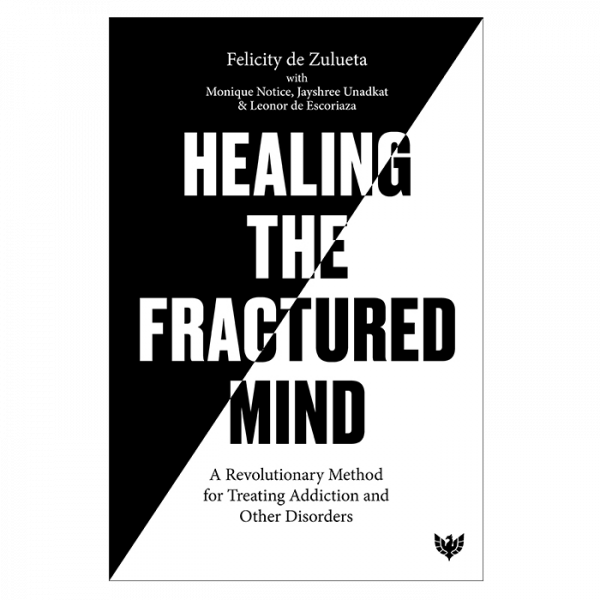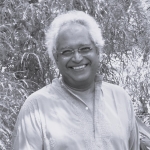For more than a century, the cultural imagination of psychoanalysis has been assumed and largely continues to be assumed as Western. Although the terroirs of psychoanalysis in South America, France, Italy, England, the United States, and so on have important differences, they all share a strong family resemblance which distinguishes them clearly from the cultural imaginations of Indian, Chinese, Korean, Japanese and other non-Western terroirs.
Fundamental ideas about human relationships, family, marriage, and gender often remain unexamined and pervade the analytic space as if they are universally valid. Thus, ideas that are historically and culturally only true of and limited to modern Western, specifically European and North American middle-class experience, have been incorporated unquestioningly into psychoanalytic thought.
In the intellectual climate of our times, with the rise of relativism in the human sciences and politically with the advent of decolonization, the cultural and historical transcendence of psychoanalytic thought can no longer be taken for granted. Insights from clinical work embedded in the cultural imaginations of non-Western civilizations could help psychoanalysis rethink some of its theories of the human psyche, extending these to cover a fuller range of human experience. These cultural imaginations are an invaluable resource for the move away from a universal psychoanalysis to a more global one that remains aware of but is not limited by its origins in the modern West. This book of essays aims to be a step in that journey, of altering the self-perception of psychoanalysis from ‘one size fits all’ into a more nuanced enterprise that reflects and is enriched by cultural particularities.
The perfect book for psychoanalysts, psychotherapists, cultural psychologists, anthropologists, students of South Asian, cultural, and post-colonial studies, and anyone interested in the current and possible future shape of psychoanalytic thought.





 Sudhir Kakar is an Indian psychoanalyst and writer. He has been a lecturer and visiting professor at Harvard University, visiting professor at the universities of Chicago, McGill, Melbourne, Hawaii, and Vienna, fellow at the Institutes of Advanced Study, Princeton, Berlin, and Cologne, and is on the board of the Freud Archives.
Sudhir Kakar is an Indian psychoanalyst and writer. He has been a lecturer and visiting professor at Harvard University, visiting professor at the universities of Chicago, McGill, Melbourne, Hawaii, and Vienna, fellow at the Institutes of Advanced Study, Princeton, Berlin, and Cologne, and is on the board of the Freud Archives.
Salman Akhtar, MD, training and supervising analyst, Psychoanalytic Center of Philadelphia; author of Mind, Culture, and Global –
‘Sudhir Kakar is topmost among those who have put their shoulders to the wheel and helped move the antiquated “psychoanalytic anthropology” to a fresh, modern, and clinically useful “anthropological psychoanalysis.” The essays contained in this most recent book of his are interdisciplinary, dialectical, and meticulously argued. They open up the non-Western world to psychoanalysis and broaden the field’s epistemic terrain and conceptual reach in deep and meaningful ways.’
Alfred Margulies, Boston Psychoanalytic Society and Institute, Harvard Medical School –
‘How does a culture fantasize, sing, dream itself into existence? What are its myths, stories, values, and aspirations? And how deeply does this cultural ambience reach into our psyches? This brief volume brings great wisdom, distilling deep, personal, and hard-won insights. Years ago, my first encounter with Sudhir Kakar moved and fascinated me, catalyzing a dialogue that revealed new cross-cultural understandings of psychoanalysis and, indeed, of the human condition. Kakar’s astute take on Western psychoanalysis illuminates blind spots and opens unrealized potentials, helping us all to find one another anew, bringing us into conversation within a world of possibilities. What a gift of humane, profound, and surprising psychoanalytic originality! Let his presence light you up.’
Jay Greenberg, PhD, training and supervising analyst, William Alanson White Institute; former editor, The Psychoanalytic Quarterly –
‘Sudhir Kakar offers a vision of psychoanalytic theory and practice as it has been shaped by what he calls the Indian “cultural imagination.” In doing so, he gives us a fascinating glimpse of how psychoanalysis works in a part of the world far removed – geographically, socially, and politically – from where it was born. And, equally valuable, he challenges readers from other cultures to interrogate the unexamined assumptions of their own thinking. The book is essential reading for anybody interested in the intricate ways in which culture and psyche together shape human experience and its ailments.’
Lorena Preta, psychoanalyst, Italian Psychoanalytic Society; full member, International Psychoanalytical Association (IPA); coordinator, IPA Geographies of Psychoanalysis –
‘Sudhir Kakar has spent his life as a writer and psychoanalyst personally describing and experiencing the margin, that boundary that marks the possibility of knowing the other by retranslating different myths and traditions through cultural imagination. It is an exceptional transformative work, enlarging psychic and cultural space.’
Anthony Howell, The Fortnightly Review, May 2024 –
‘From the word go, Sudhir Kakar’s book on psychoanalysis and non-Western civilizations promises to be entertaining as well as enlightening. […] Kakar provides rich insights into the immense wealth of both Buddhist and Hindu mythology in terms of analytical paradigms that might aid analysis, particularly in non-Western environments. […] But this is not simply a book for analysts. Kakar is a novelist as well as a doctor of the mind, and he appreciates how literature and art allow different cultures to apprehend life in a diversity of ways. [….] Kakar’s wide fund of reference encompasses both Eastern and Western art, as well as their poetry and philosophy. This makes for an immensely refreshing book.’
Komal Ramchandani Gupta, Journal of the American Psychoanalytic Association, Vol. 73, No. 6, December 1, 2025 –
‘The Indian Jungle presents a compelling opportunity for psychoanalytic clinicians to reflect on their own cultural imaginations and assumptions in their clinical work. The book serves as a good starting point for considering how culture is deeply ingrained in our daily lives, family dynamics, relationships, psychoanalytic theories, and psychotherapy treatment. I recommend approaching Kakar’s theorizing of the Indian Hindu cultural imagination with openness and curiosity, and to analyze the resistances as they inevitably arise in both the clinician and the patient. Remaining radically open and maintaining cultural humility in the therapeutic process with patients of Indian heritage is essential, rather than making generalized assumptions (Hart, 2020). Furthermore, it is also worth being mindful of how we might defensively use intellectual knowledge of Indian culture as a way to manage our own anxieties about the unknown and the unexpected (Hart, 2020). Overall, I found Kakar’s The Indian Jungle to provoke deep personal and clinical reflection, to generate stimulating discussions with colleagues, and to provide meaningful considerations for how psychoanalytic theorizing can incorporate a variety of cultural imaginations to address suffering.’